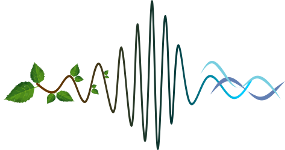The Duke University Marine Laboratory is located on the Atlantic coast in Beaufort, North Carolina, USA. The waters surrounding the lab support many jobs and livelihoods including fishing, recreation, and scientific research. Thus students in local K-12 classrooms experience their “backyard” environment in a variety of ways. To promote a deeper sense of connection to the local marine environment, we are developing educational activities that will help young students experience the underwater soundscape and gain awareness of the role of sound and hearing for marine animals, as well as in their own lives. These activities will build on students' classroom knowledge and allow them to interact with local scientists studying marine animals and sound. Student learning objectives include 1) explaining the importance of sound especially for marine mammals, 2) collecting and analyzing acoustic recordings, 3) demonstrating the technology used in passive acoustic research, and 4) discussing noise pollution issues to promote understanding the effects of anthropogenic sound on marine animals. Our overarching goal is to promote interest and enthusiasm for scientific research, by making science more personal and engaging. In April 2014 we will host more than 150 local sixth grade students at the Duke Marine Lab to participate in a day of hands-on marine soundscape activities, featuring a field trip on a coastal research vessel to collect acoustic recordings. We are creating a hydrophone kit for use on this field trip, which will be available for loan to local students and teachers in the future. After the field day, we will assess the effectiveness and impact of these activities. Here, we would like to present an overview of our educational efforts, discuss the outcomes of the field day, and invite feedback on how to effectively engage younger generations in acoustic research and soundscape awareness.
|
|
|
|
Tuesday
17
General II
› 10:45 - 11:00 (15min) › Grande Galerie Evolution Conference Hall
Promoting marine soundscape awareness in middle school students
1 : Duke University Marine Laboratory, Nicholas School of the Environment
(DUML)
-
Website
* : Corresponding author
135 Duke Marine Lab Road Beaufort, NC 28516 -
United States
|
| Online user: 2 | RSS Feed |

|

 PDF version
PDF version